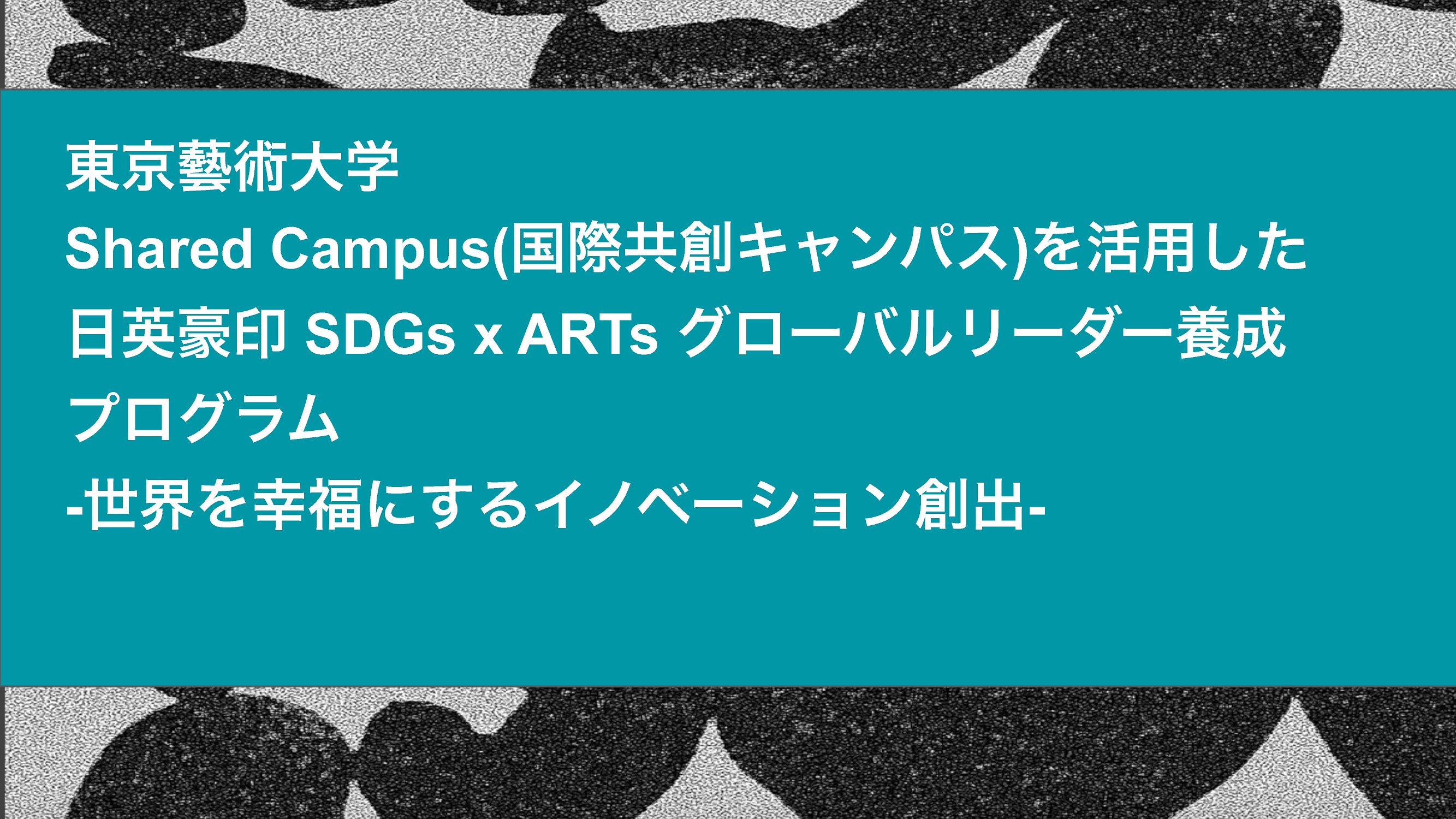クリティカル・エコロジー (Critical Ecologies)
土 / 世界の隠れた様相 (soil / another hidden part of the world)
Period:2023/3/15(wed)- 20(mon)
Venue:Ueno & Toride Campus, TAU Kamogawa City, Chiba Prefecture
From 15th to 20th, 2023, Tokyo University of the Arts hosted the international art education and research network program, “Shared Campus”.
Faculty members and students from the UK, Australia, and India visited Japan to take part in the Critical Ecology program. During their stay, they engaged in lectures, workshops, and excursions centred around the theme of ‘soil’.
The program concluded on the 20th, with a forum led by the participating students.
Focus of 2023 March Program Soil/Land - Why Soil? Why Land?
Soil
Soil is the hidden half of the world. Humans often focus on what is above the ground, paying little attention to what lies beneath. By directing our gaze below the surface, we can uncover numerous groundbreaking discoveries. There are mutual aid systems and similarities to our own bodies, such as the resemblance between the intestines and the tangled roots of plants.
Land
As human beings, we always situate ourselves through our bodies, sensory systems, perceptions, and various forms of sensory information. Land is where we find our place and sense of belonging. However, land is often exploited, disregarded, and abandoned in various ways, prompting questions about ownership and enclosure.
DAY1
Kick-off program opening ceremony
Date: 15 March 2023
Venue: Ueno Campus
10:00 Opening remarks:President Katsuhiko Hibino
10:30 Programme description:Vice-President Yusaku Imamura
10:45 Special lecture Dr Tatsushi Fujiwara(Associate Professor of History, Kyoto University)
13:30 Workshop Nuria Kramer (Zurich University of the Arts)
15:00 Mini-lecture Shilpa Das (NID) Lee-Ann Khor (Monash University)

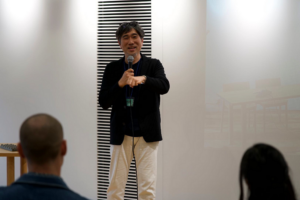
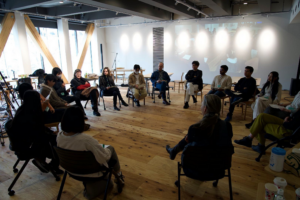
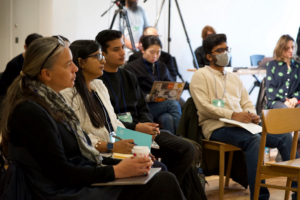

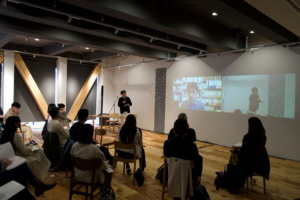
At the kick-off event, President Katsuhiko Hibino greeted the students, and Vice-President Yusaku Imamura gave an introduction to the program. Following that, the students introduced themselves.
This was followed by an online lecture by Prof. Fujihara Tatsushi from Kyoto University. The theme of the lecture was “decomposition,” and it focused on the cyclical system of the world, which has been obscured by the current cycle of production and consumption in society. Through this lecture, the students learned to explore sustainable models of society from the past and present that differ from growth.
In the afternoon, there was a workshop led by Nuria Kramer, the Director of Shared Campus, and presentations were given by participating teachers Shilpa Das and Lee-Anne Khor.
Day2
Pottery Workshop
Date:2023/3/16(thu)
Venue:Toride Campus, TAU
‘Kneading and kneading.- Ecology of Creation through Handwork”
Ryo Mikami
(Professor, Department of Ceramics, TAU)
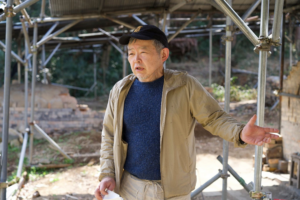



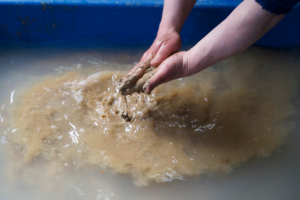
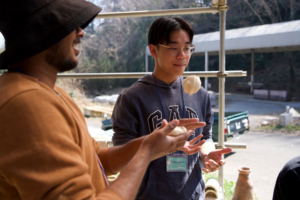
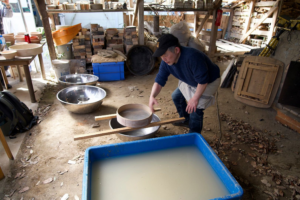

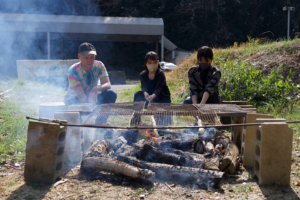

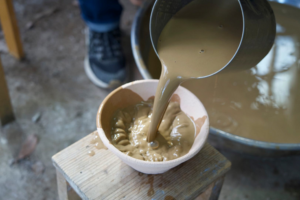
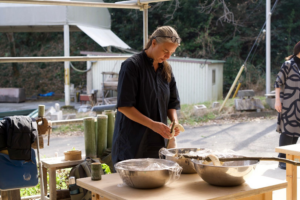
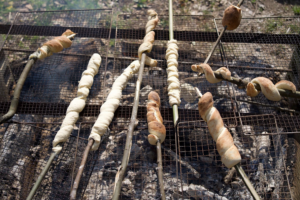
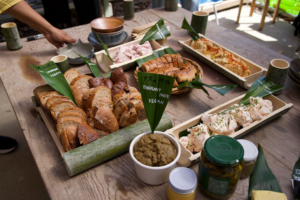
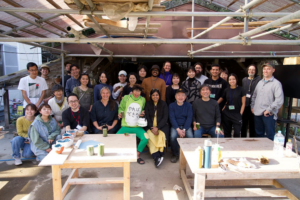
This workshop reconsiders the relationship with nature through human hands in the fields of ceramics and baking.
While using different materials – ceramic clay and flour – the participants rediscovered unexpected commonalities and connections between the two through the shared processes of ‘kneading’ and ‘baking’.
Additionally, by incorporating Toride ceramic clay into soapmaking, the participants pursued a broader sense of creativity that encompasses both form, natural cycles, and ecological sustainability.
DAY3
Kamogawa excursion
Date:3/17(fri)
Venue:Kamanuma village, Kamogawa City, Chiba Prefecture Oyama Senmaida
Visiting: General Incorporated Association ‘Small Planet’
Lecturers: Yoshiharu Tsukamoto (Professor at Tokyo Institute of Technology, Architect)
Yoshiki Hayashi (Representative Director, General Incorporated Association “Small Planet”)
Tatsuya Fukuoka (Vice-president, General Incorporated Association “Small Planet”)
Guest artist: Ichiro Endo


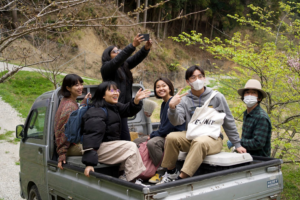

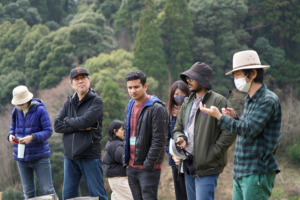
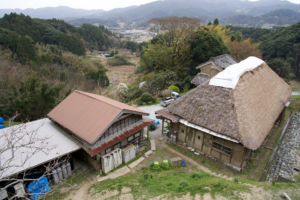
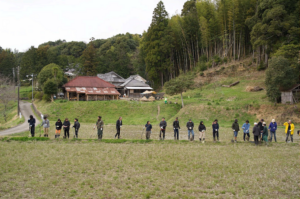

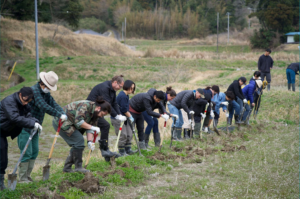


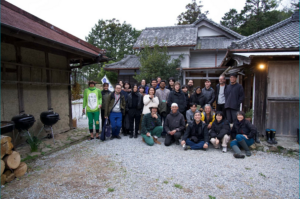
An excursion was organized to ‘Small Planet,’ a general incorporated association that carries out satoyama restoration activities in the village of Kamanuma, Kamogawa, Chiba Prefecture.
Guided by architect Yoshiharu Tsukamoto, the group toured the village and observed the satoyama restoration project in Kamanuma. By walking through the village and along the old roads, the participants learned about the history of this land and gained
perspective on how mechanization and capitalism have marginalized rural villages in Japan.
Additionally, all participants had the opportunity to experience traditional rice field ridge-cutting.


